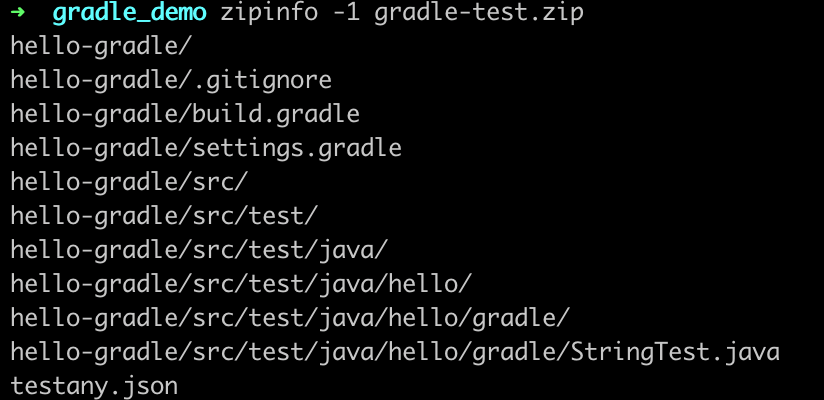Test Case Writing Guidelines and Examples - Gradle
Gradle is a Java Framework, we can use Junit as the test framework. This document shows how to writing a Gradle test case in Testany.
Testany test case supported Java version is JDK 11
If any new JDK version needed, please feel free to contact our Customer Support
Test case package - one zip file
Currently we are only support upload your local zip file to Testany, the zip file need contains at least one file:
Test case code file or files, like
StringTest.java,settings.gradle,build.gradle
StringTest.javaCODEpackage hello.gradle; import org.junit.jupiter.api.Test; import static org.junit.jupiter.api.Assertions.*; class StringTest { @Test void runGradleTests() { String testStr = System.getenv("TEST_STR"); assertEquals("FOO", testStr); } }setting.gradle
CODErootProject.name = 'hello-gradle'build.gradle
CODEplugins { id 'java-library' } repositories { mavenCentral() } dependencies { testImplementation 'org.junit.jupiter:junit-jupiter:5.7.2' } tasks.named('test') { useJUnitPlatform() }
zip all the related files as one zip file, in this case the test case package file is gradle-test.zip

After you’ve successfully prepared the .zip file, you will be able to go to register your test case on Testany Platform. Please refer to <Managing Test Case> for the registration step-by-step guide.
